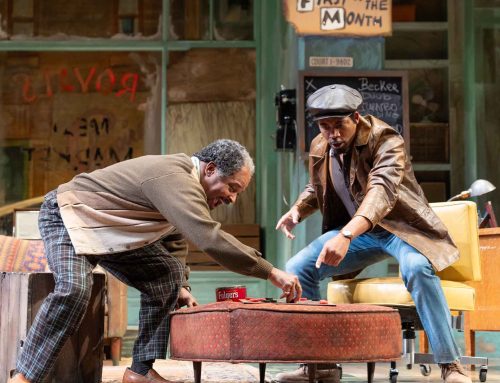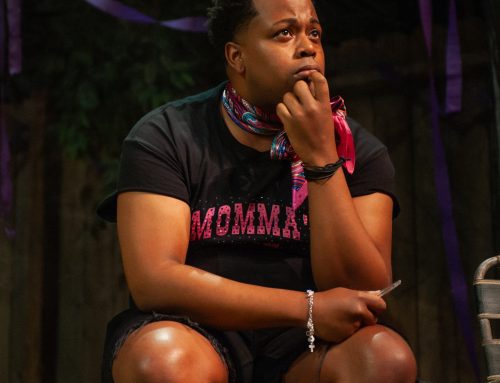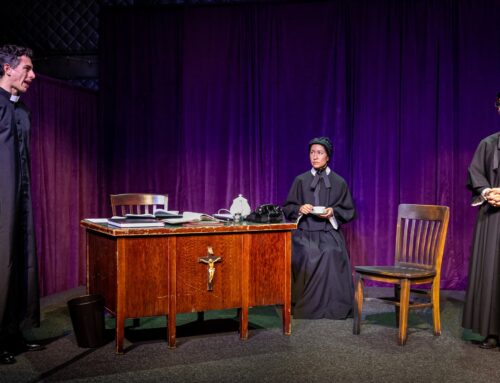August, 2006
Ashland, OR
at the Oregon Shakespeare Festival
The Merry Wives of Windsor by William Shakespeare
If you’re going to produce an over-the-top romp 400 years after it was written, you should do it with the energy, skill, and good fun that the Oregon Shakespeare Festival gives to Merry Wives. Will’s16th Century sit-coms generally do as little for me as the 21st Century ones that I delete unwatched from TiVo. Yet, OSF makes the scheming and put-ons of MW a simple good, fun night in the outdoor theater.
The key keeping this Merry Wives entertaining is the likable, awful Falstaff (G. Valmont Thomas) who is just villainous enough for the audience to enjoy the various comeuppances sent his way by the plotting wives. But my! This Falstaff is so full of energy and life that although he is a thorough scoundrel, you want him to share in the predictable happy ending.
The fast-pace performance is helped along by Vaudeville-like sight gags and first-rate rantings of the entire company. I started smiling early on when a very silly deer appeared. I remained grinning, or maybe even laughing, throughout the night right past when the same deer danced its way back for the curtain-call finale.
Jonathan Haugen’s uptight and suspicious Master Francis Ford is a standout. That’s due one-half to Haugen’s acting and one-half due to the excellent counterpointing of his wife (Tyler Layton). But, heck! Everyone in this production overachieved to make this rather dumb story a rather wonderful play to watch. Even the perennially-cast-as-ueber-perky Julie Oda managed to amuse instead of annoy.
This Merry Wives is an easy 2 1/2 hour break during which your brain can idle happily in neutral. The storyline is straight-forward and comfortably telegraphed in advance. The book is charmingly psuedo-witty, and the OSF production is clear, modern, and technically excellent.
The nonsense production number that brings the cast together on stage at the end bothered some of the audience, but not me. From a cost-benefit analysis I wonder whether creating a collection of elaborate black and white costumes was worth the brief moment in front of the audience. The new look also promised more than it delivered — I expected some significance to the tribal patterns. Nevertheless, I liked the visual charades and the equally whimsical incorporation of Obla Di Obla Da lyrics that brought the entire cast up front for the final scene.
My summary: It’s a good waste of time.
![]()






Leave A Comment